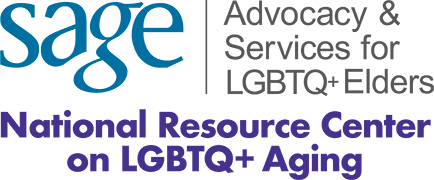The Stonewall Generation a Q&A with Dr. Jane Fleishman PhD
December 2020 | Dr. Jane Fleishman, Phd
Did you know that the leaders at Stonewall were not all white gay men? That there were drag queens, butch dykes, and trans people of color at the forefront? Their stories are rarely told. While Stonewall is seen as the birth of the modern “gay rights” movement, it wasn’t the first “gay” rebellion.
What was your inspiration for writing The Stonewall Generation: LGBTQ Elders on Sex, Activism, and Aging?
I wanted to go beyond the “whitewashing” of the Stonewall Rebellion. Did you know that the leaders at Stonewall were not all white gay men? That there were drag queens, butch dykes, and trans people of color at the forefront? Their stories are rarely told. While Stonewall is seen as the birth of the modern “gay rights” movement, it wasn’t the first “gay” rebellion. In 1959, gay men and drag queens fought back at Cooper Donuts in Los Angeles. And in 1966, trans women fought back at Compton’s Cafeteria in San Francisco. And later that year, there were “sip ins” at Julius’ Bar, modeled after the lunch counter sit-ins in the civil rights movement. I conceived of my book as a way to overturn that whitewashed narrative about who was at the forefront of the movement.
How did you go about identifying the people interviewed for this book?
I interviewed people whose stories are rarely heard. I intentionally interviewed people from different racial, ethnic, religious, gender, orientation, and regions of the country. As a white, Jewish, cisgender, older lesbian, I didn’t want the book to look like me. In fact, I brought a photographer with me to each interview so we could have beautiful color photos of each contributor to the book preceding their chapters.
Was there anything that surprised you as you conducted the interviews?
Each of the 10 people I interviewed for the book had faced different obstacles yet they all turned out to be activists. I didn’t know that was who I’d have in the book but those are the people I am always drawn to. Right now, we are living in a time of increasing social isolation and health disparities. Even before the pandemic, we knew from the research that LGBTQ elders were more at risk of negative physical and mental health outcomes. It is important that we take this moment to reflect on how we can make systemic changes to improve the lives of our LGBTQ elders. These are the people who struggled to make way for the changes that many younger people take for granted. Isn’t it time for the world to take our lives and well-being into consideration?
Were there any common themes that stood out?
There is pain. There is sadness. It is not always loving, even within the LGBTQ community. But, as I found in my sexuality research, there is fierce passion and resilience in this group. Some of the themes I discovered: bias (both internally and externally), invisibility, intimidation (especially by police), importance of allies, racism, sexism, and pleasure. Truly, all of those. And I wouldn’t be a sexuality researcher if I didn’t talk about pleasure.
What lesson or message do you hope readers will leave with after reading the book?
In the Stonewall generation, coming out took courage. It was a turbulent time, a time of fear, a time of secrecy. Intimate lives hidden in the shadows. And yet, in the midst of it all, the Stonewall generation has continued to fight for freedom, for rights, for love, and, yes, for sex.
Is there anything else you would like to share with our readers?
Among the LGBTQ elders I interviewed in my book is one young person, Joey Wasserman, who works at SAGE. I included Joey because he’s got great stories to tell and also because I believe in intergenerational dialogue. As millions of mostly young people have taken to the streets this past spring and summer in support of Black Lives Matter and against police brutality, it makes my heart sing. Young people are the leaders now and we old folks need to step aside and make room for you all. I included a young person in my book who works with LGBTQ elders at SAGE and his passion is to create openings for young people to learn from our elders. When we get together to talk about the similarities between what’s happening in progressive movements today and what happened in the 1960s and 1970s and 1980s, we learn so much from each other. Take the HIV/AIDS pandemic for instance. When we look at who took care of our gay brothers who were dying from that virus, it was lesbians, bisexuals, and trans people who created real community. Perhaps we can learn from those community bonds today as we see upwards of 260,000 people dying from the current virus. Talking intergenerationally always gives me hope. Hope for our future and hope for our lives.
How can our readers learn more about this book your work?
I’ve been an activist for over 40 years. The Stonewall Generation is composed of some of the most courageous and daring people I’ve ever known. And their leadership of social change organizations has largely gone unnoticed. I hope to carry their messages of hope all over the country. If you would like to get in touch with me, go to www.janefleishman.com and if you want to buy a copy of my book, support your local independent bookstore or buy it from the publisher at https://www.uuabookstore.org/Search.aspx?k=stonewall+generation.

